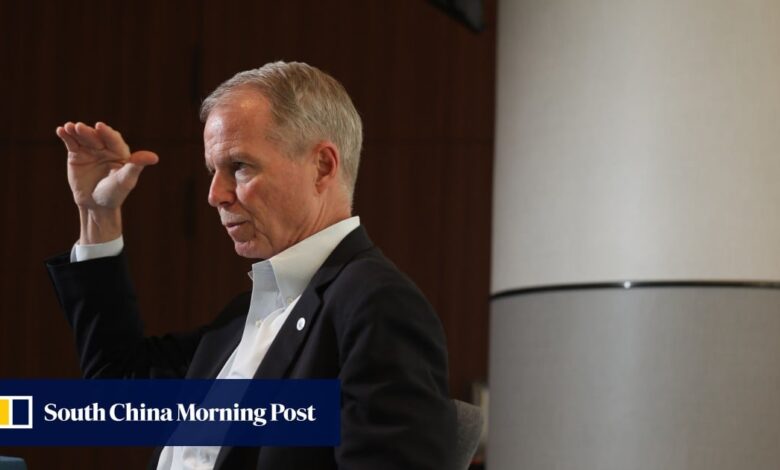US energy management firm eyes data centres as China property downturn hits profit

Johnson Controls, which is listed in New York and has its headquarters in Ireland, serves customers in over 150 nations. It designs, produces, installs and retrofits products, software and services to regulate the heating, ventilation, air-conditioning, industrial refrigeration systems, and security and fire-detection systems in both commercial and residential buildings. It has 10 production plants and three research and development centres in China.
He was in Hong Kong having travelled to Japan and China for client and internal meetings last week.
“In the time that we spent this week in Asia, data centres have certainly been one of the top topics of discussion with our customers and local teams,” he said.
AI technologies enable computers to perform advanced functions such as understanding and translating spoken and written language, analysing data and making recommendations.
The global market for cooling systems could exceed US$9 billion by 2027, up from about US$2 billion this year, according to Macquarie Capital. The adoption of liquid cooling systems in data-centre units is projected to reach 22 per cent from 1 per cent in the same period, it said.
Liquid cooling, which uses liquids such as water or refrigerants to cool data centre equipment, is a more energy-efficient alternative to traditional air cooling.
Advanced cooling technology is required because many data centre operators have set ambitious climate goals while expanding their service capacity rapidly.
“It is purely about improving the efficiency in delivering a certain level of cooling per square foot of data centre infrastructure required to handle the heat generated,” Oliver said. “We have the ability to optimise multiple means of cooling, such as air-cooled chillers and water-cooled chillers.”
Tapping into fast-growing markets, such as data centres, semiconductor and electric vehicle manufacturing plants, is important for the company to offset weaker sales in the real estate market in China.
“While demand in the residential segment is down and the commercial segment has been flattish with low single percentage-digit growth, the infrastructure and advanced manufacturing sectors such as EV, batteries, solar are seeing significant growth,” said Anu Rathninde, Johnson Controls’ Asia-Pacific president.
The softening of economic conditions and the challenging real estate market in China had dented Johnson Controls’ building software and services revenues in the region, the company said in its October-to-March interim results announcement. It expected this to persist through to September.
A drop in installations of residential heating, ventilation and air conditioning systems led to a 24 per cent year-on-year fall in Johnson Controls’ buildings solutions sales in Asia-Pacific in the six-month span. This contrasted with a 7 per cent sales growth in North America and 5 per cent growth in Europe, the Middle East, Africa and Latin America.
Asia-Pacific contributed 11 per cent of the company’s global earnings before interest, taxes and amortisation of US$927 million from building software and services in the six months to March, down from 16.7 per cent in the year to September.
Source link




